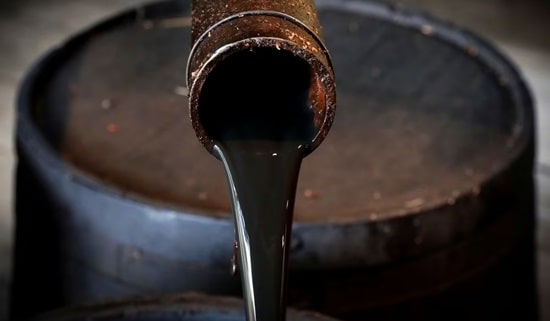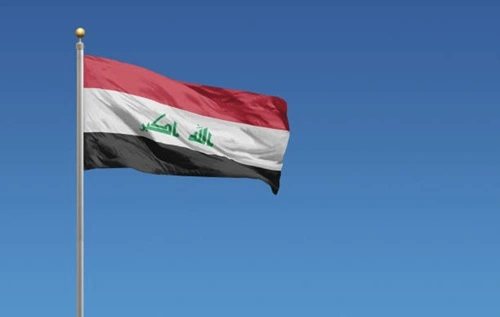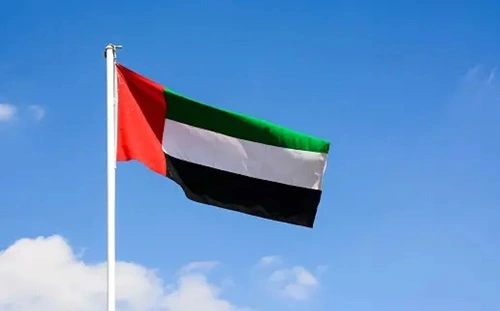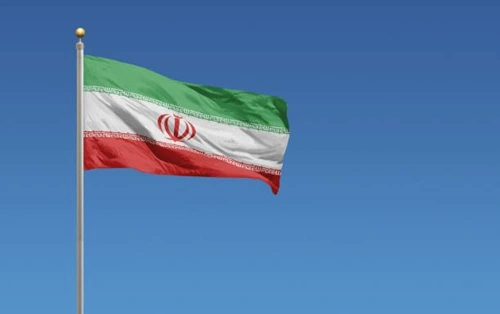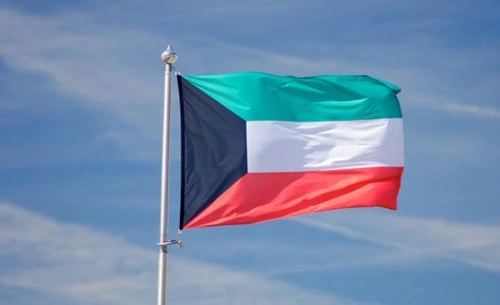The global energy sector is extremely dynamic and volatile. Proper supply of crude oil is the key to this sector. For a great many industries as well, crude oil happens to be a very important part as it happens to be one of the most effective energy source. Overall, the crude oil production is crucial for assessing economic stability and geopolitical influence. Among the Crude oil producers, US stands as the front runner. Here we will be talking about this country and 9 more who have topped the list. So let’s move forward.
Countries With Highest Crude Oil Production
1. United States (12,900,000 Barrels per Day)
Again, the US dominates crude oil production. Cutting-edge technology extracts vast deposits from shale formations, maintaining U.S. superiority. The nation’s massive daily output relies on the Permian Basin in Texas and New Mexico.US crude oil supremacy is shown by its better technologies. This revolutionary method gives the country access to untapped shale oil riches, affecting global energy. The Permian Basin, a geological giant, boosts national production. The Texas-New Mexico Permian Basin supports the US’s high daily crude oil output.
2. Russia (9,480,000 Barrels per Day)
Russia, an energy superpower, ranks second with 9,480,000 barrels per day. Siberian oil deposits strengthen the country. Drilling technology advances improve Russia’s crude oil output, demonstrating its energy sector innovation. This constant innovation in extraction methods strengthens Russia’s global energy dominance.Russia uses Siberia’s oil-rich areas to boost its daily crude oil production, known for its strategic emphasis. Russia’s energy superiority is based on its vast Siberian fields and enormous natural resources, which enable it to meet and surpass global production needs.The country’s high crude oil output is due to its dedication to drilling technology. Russia strengthens its global energy dominance by optimizing extraction procedures and exploring new oil resources with cutting-edge technology.
3. Saudi Arabia (OPEC) – (9,060,000 Barrels per Day)
Saudi Arabia, an OPEC member, produces third-most crude oil. Strategic OPEC membership improves Saudi Arabia’s oil market power. Saudi Arabia’s large production capacity helps supply crude oil despite OPEC’s limits.Saudi Arabia’s production relies on its enormous proven reserves. The country’s commitment to harnessing its huge reservoirs underscores its relevance to global energy. Saudi Arabia may negotiate and influence OPEC decisions because to its strategic importance.Saudi Arabia closely balances OPEC’s ambitions and its own. Due to its precise balance, the nation can accomplish its economic and geopolitical production objectives. Saudi Arabia’s continued strong crude oil production boosts local and global energy markets.
4. Canada – (4,778,973 Barrels per Day)
Canada’s fourth-place crude oil position shows its global importance. Smart utilization of advanced technology, especially in Alberta’s huge oil sands, is the country’s contribution. Technical superiority enables Canada to produce 4,778,973 barrels of crude oil daily, making it a global leader.Cutting-edge technology helps Canada extract oil from Alberta’s tough oil sands. These efficient extraction methods enable the use of hitherto uneconomical unconventional sources. Canadian crude oil output rose everyday, displaying energy industry innovation.
5. Iraq (OPEC) – (4,340,000 Barrels per Day)
Iraq is a major OPEC oil producer. Iraq increases production amid geopolitical challenges. Iraq’s massive Basra-based proved reserves account for its longevity and oil supply contribution.Iraq wants to increase its oil market position despite geopolitics. Iraq has purposefully increased its production capacity rather than giving in to foreign pressure, demonstrating its resolve to overcome obstacles and maintain its energy dominance.Iraq’s oil production strategy depends on Basra’s massive oil reserves. Iraq exploits its enormous resources to access its reservoirs strategically, contributing to the global oil supply chain. Despite its constraints, Basra’s production infrastructure development and optimization show Iraq’s commitment to global energy demands.
6. China – (4,016,664 Barrels per Day)
China’s rising crude oil output reflects its growing energy needs. Industrial growth and rapid urbanization drive the nation’s trajectory. These variables work together to boost domestic oil output, strengthening China’s global energy dominance.The voracious energy demands of China’s rapidly growing industrial landscape have driven its unparalleled crude oil output. Energy consumption rises as the country becomes a worldwide industrial powerhouse. Industrial growth and energy needs are interconnected, demonstrating China’s commitment to energy self-sufficiency.Meanwhile, China’s rapid urbanization boosts crude oil output. The transfer of a large population from rural to urban demands more energy to power infrastructure, transportation, and urban growth. This tendency drives local oil production and positions China as a global energy leader.
7. Brazil – (3,670,000 Barrels per Day)
Due to its Santos Basin deep-sea pre-salt deposits, Brazil produces ninth most crude oil. Brazil’s offshore focus and drilling technologies enable it to reach enormous reserves. This technological expertise strengthens its top crude oil producing status.Brazil’s crucial discovery of oil-rich deep-sea pre-salt deposits placed it sixth. Brazil’s crude oil output relies on the Santos Basin. The nation’s aggressive offshore deposit extraction makes it a global energy player.Brazil needs offshore drilling to utilize these enormous resources. Innovation in drilling technology helps Brazil overcome deep-sea exploration challenges. Brazilian crude oil output is increasing thanks to innovative offshore drilling and pre-salt region exploitation.
8. United Arab Emirates (OPEC) – (3,250,000 Barrels per Day)
The UAE’s huge oil reserves and OPEC membership solidify its position in global oil markets. Strategic investments in novel extraction technologies have led to the UAE’s high daily crude oil production.UAE oil reserves make it an OPEC powerhouse. With these vast reserves, the UAE has strategically become a significant crude oil supplier.UAE crude oil output is strong due to forward-thinking extraction technology investments. Cutting-edge technologies and procedures improve extraction efficiency and sustainability in the nation. These large investments increase UAE production and show its energy technological leadership.Modern extraction aids UAE energy sustainability. Innovation helps the nation meet production needs and address long-term environmental and resource challenges.
9. Iran (OPEC) – (3,140,000 Barrels per Day)
Iran produces a lot of crude oil despite geopolitical concerns and sanctions. The nation’s resilience in the face of these obstacles underlines its enduring relevance in the global oil market. Iran’s production is also affected by OPEC’s output cuts.Iran trades crude oil amid geopolitical tensions and sanctions. Strategic resource management and energy market security helped Iran overcome these obstacles. Iran uses its massive oil reserves to supply global energy demands despite international restraints.One cannot exaggerate OPEC’s effect on Iran’s crude volume. Iran must work with this strong authority to stabilize oil prices. Iranian output is impacted by OPEC’s production-regulation agreements. OPEC manages oil price volatility and supply-demand balance.
10. Kuwait (OPEC) – (2,590,000 Barrels per Day)
Kuwait, an OPEC member, produces 10th-most crude oil. Kuwait produces more crude oil everyday due to its large oil reserves and ongoing investment in cutting-edge exploration and production technologies.Kuwait’s OPEC importance influences the oil market. The nation’s existing oil resources propel global crude oil production. Kuwait is the #1 oil producer due to its proved reserves.Kuwait’s exploration and production technology boosts its status. The nation optimizes crude oil extraction and recovery utilizing contemporary technologies. This proactive approach enhances Kuwait’s productivity and demonstrates its energy technology innovation.Kuwait is a global crude oil powerhouse due to its proven oil resources and technological breakthroughs. Sustainable and efficient production methods help OPEC regulate and stabilize global oil prices.
Conclusion
In the global level, the above mentioned top 10 producers of crude oil have acted perfectly to ensure a sustainable supply all the year round. It is true that other avenues for energy production are being searched now. But till the time some proper alternative is found, crude oil remains the key player and these countries continue their dedicated work of crude oil supply.
Frequently Asked Questions
Q1. What factors contribute to a country becoming the largest producer of crude oil?
Ans: Key factors include the size and accessibility of oil reserves, the level of technological advancement in extraction methods, investment in the oil sector, and government policies supporting oil production.
Q2. How does crude oil production impact a country’s economy?
Ans: Crude oil production significantly boosts a country’s economy by providing jobs, generating substantial revenue through exports, and attracting foreign investments. It also contributes to the development of related industries such as petrochemicals and refining.
Q3. What are the environmental implications of being the largest producer of crude oil?
Ans: Large-scale crude oil production can lead to environmental concerns such as oil spills, greenhouse gas emissions, and habitat disruption. Countries often need to balance economic benefits with environmental protection measures.
Q4. How does the production of crude oil affect global oil prices?
Ans: The production levels of the largest producers significantly influence global oil prices. An increase in production can lead to lower prices due to higher supply, while a decrease in production can cause prices to rise.
Q5. What advancements are being made in the crude oil production industry?
Ans: Advancements include improved drilling technologies, such as hydraulic fracturing and horizontal drilling, enhanced oil recovery techniques, and the development of digital oil fields that use data analytics and automation for better efficiency.
Q6. How does geopolitical stability affect crude oil production?
Ans: Geopolitical stability is vital for consistent crude oil production. Political unrest, wars, and sanctions can disrupt production and exports, leading to volatility in the global oil market.
Q7. What are the future prospects for crude oil production in the largest producing countries?
Ans: Future prospects depend on several factors, including technological advancements, global demand for oil, alternative energy developments, and environmental policies. The largest producers are likely to continue investing in efficient and sustainable production methods to maintain their positions in the global market.

Brandon is the cheif editor and writer at WorldUnfolds.com. With a passion for storytelling and a keen editorial eye, he crafts engaging content that captivates and enlightens readers worldwide.

